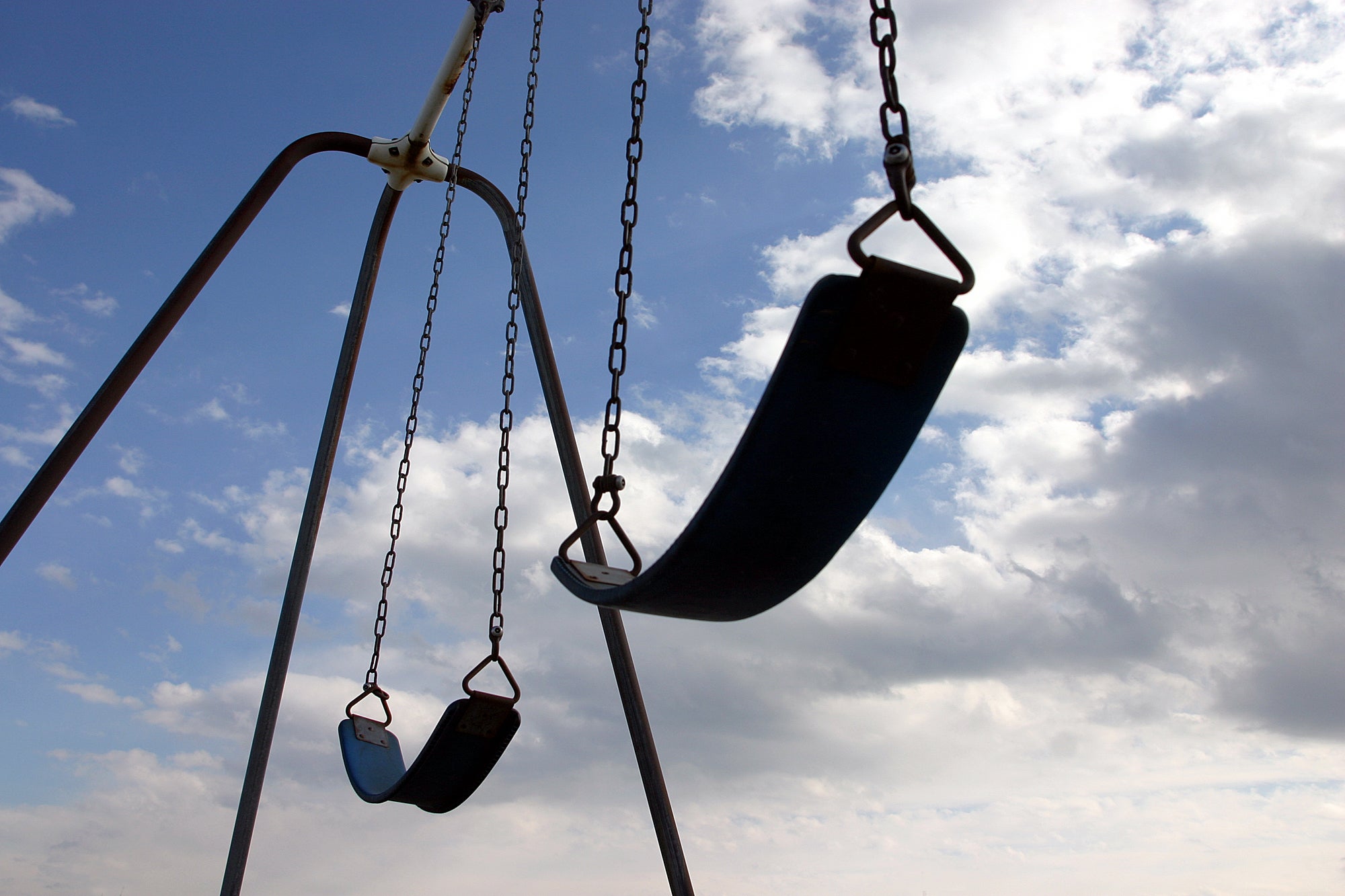Exploring strategies for improving nutrition and planetary health
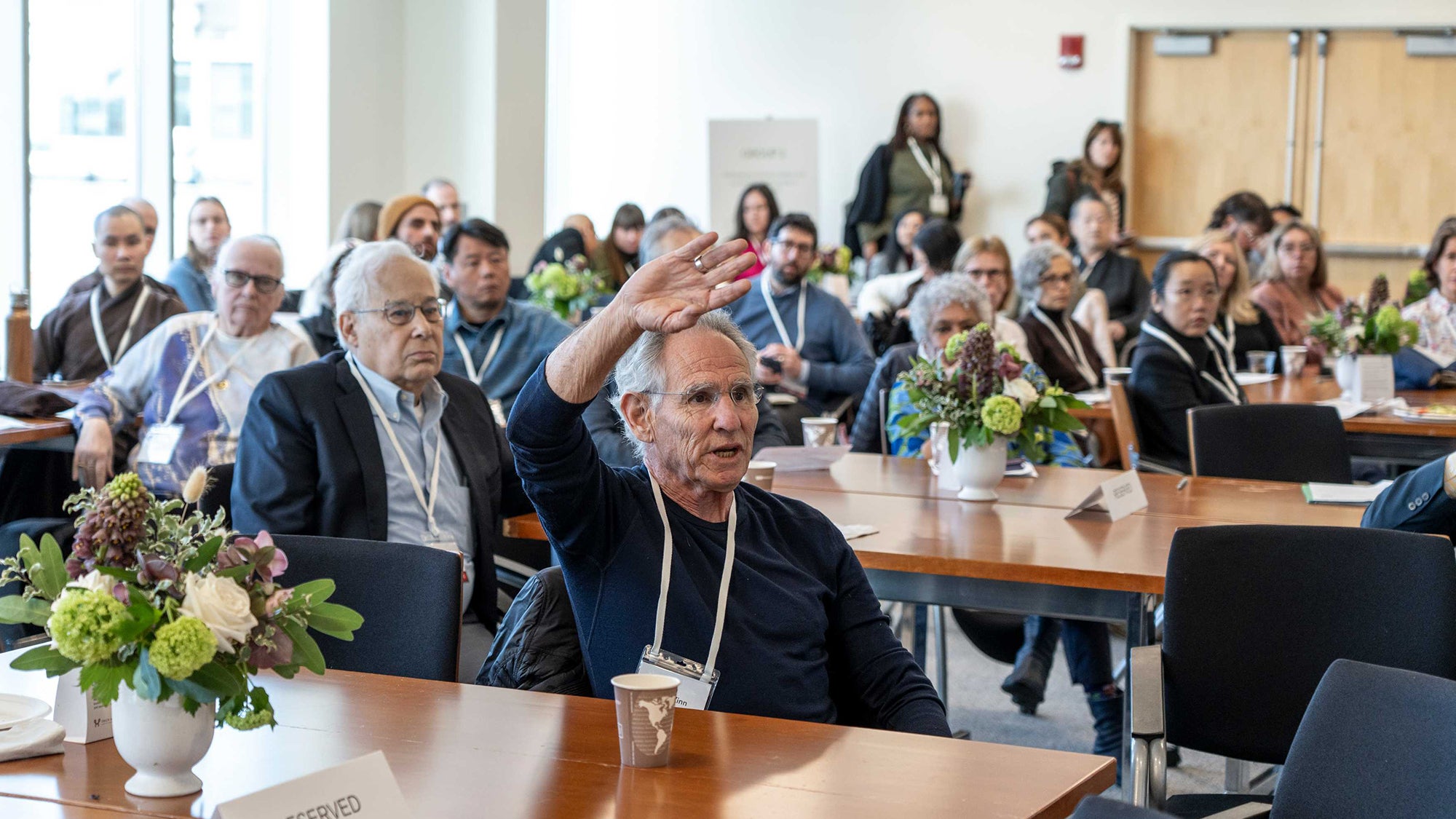
Third annual mindfulness in public health symposium focused on the power of social connectivity for making change.
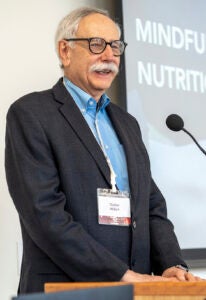
Researchers and practitioners in nutrition, climate science, mindfulness, and communication came together for a symposium on March 25 organized by the Thich Nhat Hanh Center for Mindfulness in Public Health at Harvard T.H. Chan School of Public Health. Monastics from the International Plum Village Community founded by Zen Master Thich Nhat Hanh led the group in mindfulness practices and joined in discussions on how to promote healthier and more sustainable diets to improve personal and planetary health.
In his opening remarks, Walter Willett, professor of epidemiology and nutrition and director of the Thich Nhat Hanh Center, acknowledged that this year’s event was happening during a chaotic time in public health. He spoke about the importance of acknowledging the ways that our actions affect the lives and health of others around the world, and the urgency of finding ways to feed everyone healthy food without destroying the planet. “Everything is about interconnection in public health,” he said.
Communication, connection, and communities
Initial sessions in the daylong event held at Simmons College focused on ideas around effective public health communication.
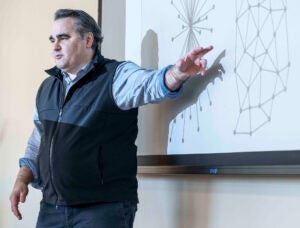
Relying too heavily on influencers when trying to make change can be ineffectual and even backfire, said Damon Centola, a professor from the Annenberg School for Communication who studies social networks and behavior change. Complex ideas and new behaviors don’t spread like a virus, he said.
Centola shared two models of social networks—one shaped like an exploding firework and another like a fishing net. The firework model has an influential person at its center, disseminating ideas in straight lines to their connections. But Centola’s research has shown that while this model is good for getting information out quickly, it doesn’t foster adoption of new behavior. That requires more social reinforcement. In his fishing net model, the clusters of people at the periphery of a social network are where norms change. For example, he noted that people’s decisions around whether or not to wear a face mask during the COVID-19 pandemic were more dependent on what people around them were doing than on what influential people were doing.
Public health is not something that happens in isolation, said Kasisomayajula “Vish” Viswanath, Lee Kum Kee Professor of Health Communication. “It is anchored in communities. It embraces communities.” But the importance of social connections to well-being—not just for individuals but for societal and planetary health—is often overlooked, he said. He spoke about the health consequences of frayed social ties, and of the importance of finding ways to overcome barriers in communications access to mobilize collective well-being.
Shauna Bowes, a researcher at Vanderbilt University, spoke about how intellectual humility can help scientists come across as more trusted messengers of health information. Her research findings have shown that people are more likely to follow recommendations from scientists who were honest about what they didn’t know.
Improving healthy eating through mindfulness
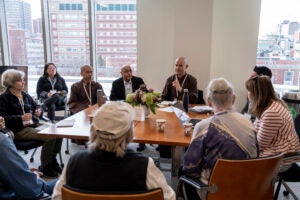
Participants later split into breakout groups to discuss topics related to promoting healthier diets.
Brett Otis, communications project manager in the Department of Nutrition, co-facilitated a group focused on addressing misinformation and social media influences. He said that its discussions touched on how people can take a more mindful approach to social media use by exploring how their feed makes them feel and considering how their posts may impact others. “With so many forces sewing doubt and creating discord—and algorithms prioritizing outrage-inducing content—taking a pause and a few breaths before we react is a small way individuals can help support their own well-being and foster healthier online communities,” he said.
The group’s participants also discussed a report released late last year by a National Academies of Sciences, Engineering, and Medicine committee chaired by Viswanath that explored the nature and scope of misinformation about science and offered recommendations for limiting its spread and reducing its potential harms. In addition, discussions highlighted the Center for Health Communication’s partnership with social media creators on mental health content.
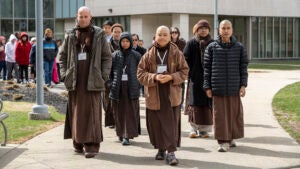
Speakers throughout the day shared ways that mindfulness practices can help improve personal and planetary health. For example, Eric Loucks, professor and director of the Mindfulness Center at Brown University, presented research findings that showed that training people in self-awareness of their thoughts, emotions, and physical sensations helped adults with high blood pressure better adhere to the healthy DASH diet.
During the symposium, monastics led participants in guided meditation and mindful eating and walking practices, and periodically rang a temple bell, a Zen Buddhist mindfulness technique for recentering the mind on the present moment.

